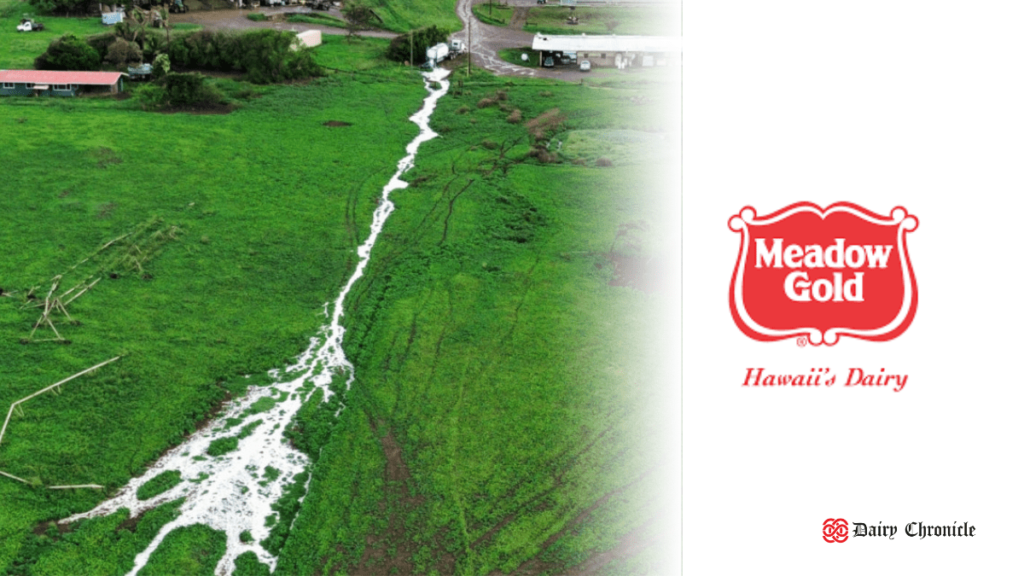Meadow Gold and Cloverleaf Dairy face a lawsuit for allegedly polluting Hawaii’s Island waterways with milk and animal waste, violating federal environmental laws.
Meadow Gold Dairies Hawaii LLC and Cloverleaf Dairy are under legal scrutiny for allegedly polluting local waterways on Hawaiʻi Island. The Center for Food Safety (CFS) has issued a notice of intent to sue, citing violations of federal environmental laws. The lawsuit centers around claims that the dairy operations have been dumping milk and animal waste into local streams, groundwater, and the Pacific Ocean.
Company
Meadow Gold Dairies Hawaii LLC and Cloverleaf Dairy are prominent dairy operations in Hawaii, known for their extensive milk production facilities. Meadow Gold is a well-established brand with a long history in the dairy industry, providing a range of dairy products to the local market. Cloverleaf Dairy, operating alongside Meadow Gold, focuses on large-scale dairy farming under the concentrated animal feeding operation (CAFO) model. Both companies have significant operations on the Big Island, where they are now facing legal challenges regarding their environmental practices.
Background on the Lawsuit
The Center for Food Safety has sent a formal notice of intent to sue Cloverleaf Dairy, which operates under both Meadow Gold Dairies Hawaii LLC and Cloverleaf Dairy. This legal action is based on accusations that the dairy has been discharging significant amounts of manure and discarded milk into nearby waterways. This alleged activity is said to breach the federal Clean Water Act and the Resource Conservation and Recovery Act.
The notice of intent to sue was accompanied by photographic evidence purportedly documenting the illegal dumping activities. According to the CFS, Cloverleaf Dairy’s operations are classified as a Concentrated Animal Feeding Operation (CAFO) under the Clean Water Act due to the confinement of over 700 mature dairy cows, along with heifers and calves.
Environmental and Legal Concerns
The Clean Water Act prohibits CAFOs from discharging animal waste and discarded products, including milk, into the environment without a permit. Cloverleaf Dairy is alleged to be operating without such a permit. The notice also accuses the dairy of violating the Resource Conservation and Recovery Act by potentially engaging in open dumping of solid wastes.
Key issues highlighted include:
- Improper Waste Management: The notice alleges that Cloverleaf Dairy’s manure management and storage practices are inadequate, leading to contamination of the Pacific Ocean.
- Lack of Permits: Cloverleaf Dairy is reported to lack the necessary CAFO permits, which are required for operations of this scale.
- Impact on Local Ecosystems: The alleged dumping has reportedly caused significant harm to local waterways and marine environments, affecting both ecological and human health.
Operational Impact
The Center for Food Safety’s legal action could have major implications for Cloverleaf Dairy’s operations. If proven, the violations could lead to:
- Fines and Penalties: The dairy may face substantial financial penalties for non-compliance with environmental regulations.
- Operational Changes: Cloverleaf Dairy may be required to implement stricter waste management practices and obtain necessary permits.
- Environmental Remediation: The dairy might be obligated to clean up contaminated sites and mitigate environmental damage.
Statements from the Center for Food Safety
The Center for Food Safety has criticized Cloverleaf Dairy for its alleged disregard for environmental laws. Charlie Tebbutt, lead counsel for the CFS, emphasized the need to address these violations to protect local sacred sites and prevent further environmental harm.
Sylvia Wu, Co-Executive Director of the Center for Food Safety, highlighted the broader implications of intensive animal confinement operations, questioning their sustainability and impact on Hawaiʻi’s fragile ecosystem.
Future Steps
The Center for Food Safety plans to proceed with legal action after the 60-day notice period required by the Clean Water Act. The organization is represented by a team of attorneys including Charlie Tebbutt and Jon Frohnmayer from the Law Offices of Charles M. Tebbutt, PC, as well as Tom Pierce and Don Spurrell.
The lawsuit against Meadow Gold Dairies Hawaii LLC and Cloverleaf Dairy underscores critical concerns regarding environmental stewardship and regulatory compliance in the dairy industry. As the legal process unfolds, the outcome will likely have significant repercussions for the dairy’s operational practices and environmental policies.



